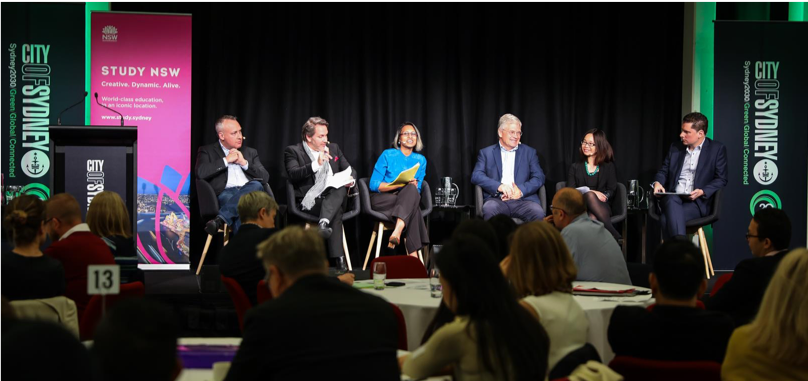Edtech startup Practera invests in Queensland HQ
Experiential learning edtech company Practera has appointed a Queensland leader & partnerships and opened a Brisbane office to work more closely with customers in the state.
Practera Co-Founder & Co-CEO Beau Leese said, “I was privileged to work closely with Study Queensland over the past 12 months as an education innovator in residence. I found that employability and experiential learning are high on the agenda for many institutions, and there is a great deal of energy & innovation in this space around the state. Examples of exciting projects already using the Practera platform in Queensland include a world leading skills micro-credentialling pilot with Study Cairns and Study Queensland, mentoring for nursing graduates from SCU and CQU in regional Queensland, and industry project programs for UQ.”
Incoming Executive Director, Queensland Jamie Ford joins Practera from her most recent role as General Manager Customer Experience & Innovation with UnitingCare Queensland. Prior to that she was a Senior Manager with EY’s Queensland Advisory practice specialising in Higher Education and customer led transformation. She is a regular guest lecturer at UQ Business School, UQ MBA Graduate and Not-for-Profit Board member.
Ford said, “I am really proud to join the Practera team. Practera is an exciting growth stage edtech company that is achieving great outcomes for Universities in Australia and globally. I am a big believer in customer value, innovation and creating opportunities for people through new pathways and skills. I’m very excited about working with educators and industry partners in Queensland to deliver enhanced employability outcomes for students.”
Practera will also form a partnership with Brisbane based employability provider Startup Interns. Practera and Startup Interns collaborated on a recent successful Study Queensland funded program pairing students with startups. Leese continued “Students are seeking to understand career opportunities in fast growth startups, and startups are hungry for talent & mindset with the capability to work entrepreneurially. Startup interns founders Ocean Cheung and Dongjin (DJ) You have done a terrific job building energy in this space in Queensland, and we’re excited to take this program forward with them.”
Startup Interns co-founder & Managing Director Ocean Cheung said, “This partnership with Practera will see us able to advance our mission to deepen the cycle between startup founders and entrepreneurial students through practical experience of working together. Practera are at the global leading edge in this space and will help us achieve our mission at broader scale.”
Practera Queensland’s doors are open and is ready to continue partnering with educators and industry alike to achieve high quality employability outcomes for students.
Reach out to Jamie Ford (jamie@practera.com) or Ocean Cheung (ocean@startupinterns.co) to find out more.


